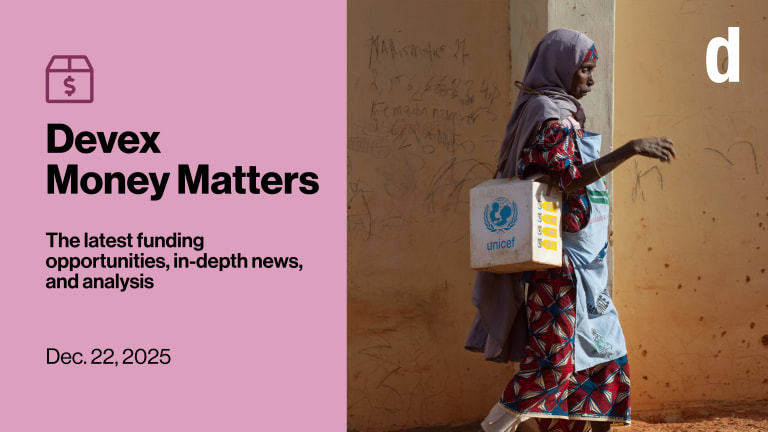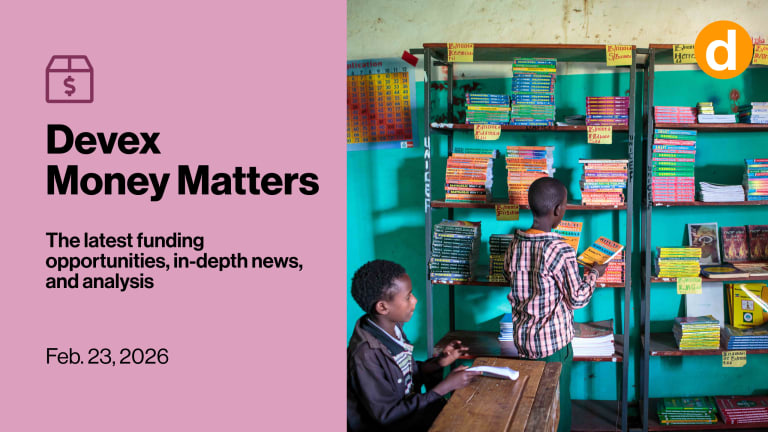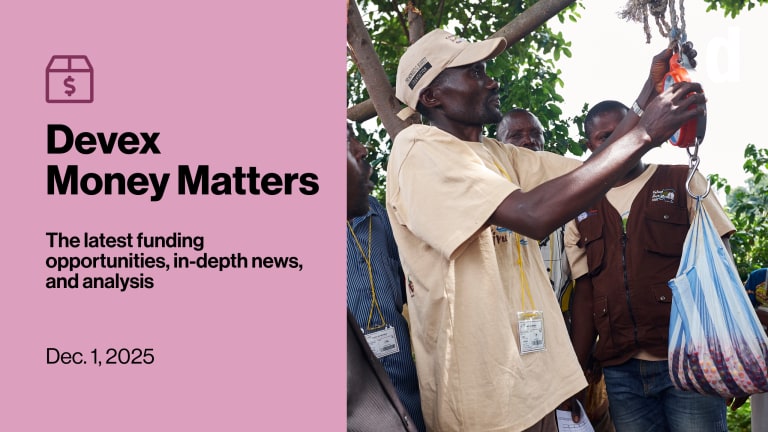
The European Union is looking to develop a more strategic approach to its aid funding. We look at what’s behind its approach, and dig into one funding area: in sub-Saharan Africa.
+ Over 30% of our respondents to the SDG talent gap survey we shared last week believe localization is the trend that has the most potential for positive impact on fulfilling SDG-related talent needs. What do you think? Take our survey to let us know which other trends are shaping globaldev recruitment practices.
A window to the Gateway
The European Union is one of the world’s largest development cooperation funders, as well as one of the most influential political entities. But for some time there have been rumblings about whether it gets the credit it deserves for the amount of money it spends on aid.
That’s a consideration partly influenced by the Belt and Road Initiative, China’s much-mentioned strategy to strengthen infrastructure along its major trading routes. Should the EU have a comparably well-known brand?
Enter the “Global Gateway” — an attempt to create a more strategic approach to aid and development, to improve both impact and European renown.
Last week’s European Development Days offered an opportunity for questions about what the Global Gateway actually is and what it is for. My colleague Vince Chadwick attended, and found that there is still more clarity needed.
Meanwhile, our newsroom has been digging into what money there is available via the Global Gateway. Earlier this year, my colleague Miguel Antonio Tamonan broke down the EU multiannual indicative programs’ funding, which set the EU’s objectives and priorities for development cooperation. Today he examines the €19.5 billion funding for sub-Saharan Africa in greater detail.
EU: €19.5B development program for sub-Saharan Africa (Pro)
+ Catch up on our coverage of EU funding insights, and try out Devex Pro Funding today with a free five-day trial to explore funding opportunities from over 850 sources in addition to our analysis of funding trends.
Funding activity
GAC. $155M (CA$200M) to support vaccine delivery and distribution in 13 countries.
OFID. $100M to promote sustainable development in Malawi, Uganda, Cambodia, and Uzbekistan.
USAID. $11.75M for food security in Sri Lanka.
WB. $178.1M loan to combat malnutrition in the Philippines.
WB. $143M to address drought and food insecurity in Somalia.
Gates to Africa
The Bill & Melinda Gates Foundation plans to direct $140 million to African institutions and leaders over the next four years. Money will go toward ending malaria and neglected tropical diseases, and recovery from the COVID-19 pandemic. Melinda French Gates announced the funding last week at the Kigali Summit on Malaria and Neglected Tropical Diseases in Rwanda.
Gates Foundation: $140M to fight malaria in Africa
+ Track how business, philanthropy, and development finance leaders are tackling global challenges by signing up for Devex Invested — our free, must-read Tuesday newsletter.
Unhappy at UNOPS
Featured opportunity: Gavi’s $100M for unvaccinated children
Gavi, the Vaccine Alliance has provided $100 million for the Zero-Dose Immunization Programme, which will fund two groups of partners to identify and reach children living in displaced communities and fragile and conflict settings, who have not yet received a dose of a routine vaccine.
The International Rescue Committee and World Vision have been chosen to lead the initiative in the Horn of Africa and the Sahel regions respectively, across 11 countries, which between them contain 4 million “zero-dose” children.
The fallout from the United Nations Office for Project Services scandal continues. The U.N.'s internal contractor has seen the suspension of one senior official and the departure of another, and it faces demands for major changes from the countries on its board. Now Finland has suspended all funding to U.N. initiatives while it casts a critical eye over the other entities it funds.
I spent some time understanding how UNOPS got to the point of losing more than $20 million on a series of failed investments. I found a wrangle over reserves which goes back well over a decade.
DevExplains: An inside look at the UNOPS scandal
+ Catch up on all of our coverage of the UNOPS scandal.
Future unclear
The Aid Transparency Index may not be able to continue, its publishers have warned.
The index, which measures how effectively the world’s largest donors record their funding, has lost a major funder, and needs to attract new resources to continue.
Read: Aid Transparency Index at risk of closure
Sign up to Money Matters for an inside look at the biggest stories in development funding.
Search for articles
Most Read
- 1
- 2
- 3
- 4
- 5








